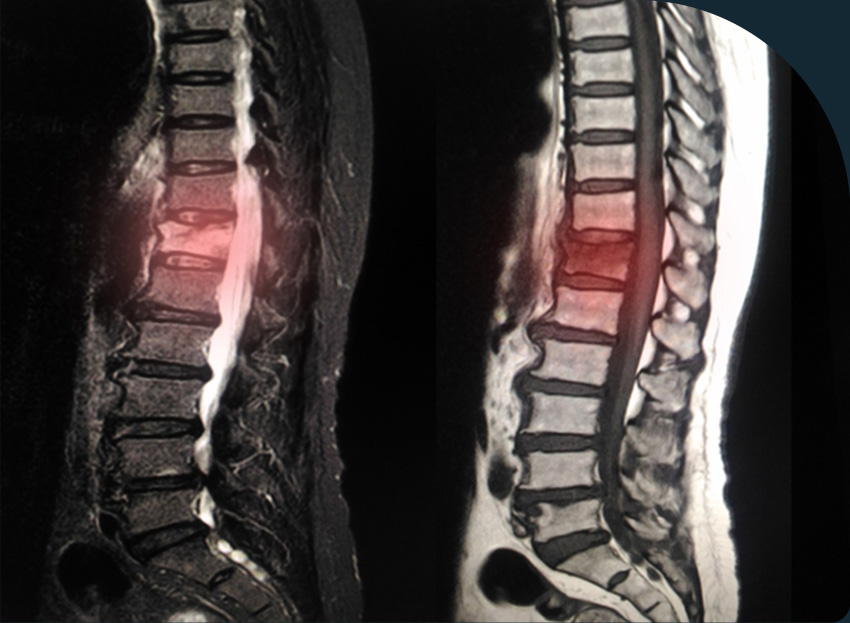Your spinal discs separate the vertebrae (bones). They cushion the spine and act as shock absorbers, allowing you to bend and twist. Unfortunately, as we age, or due to excessive wear and tear, the discs shrink, dry out, stiffen and degenerate, which can lead to neck pain, back pain, reduced range of motion and other complications. The general term used to refer to these changes is degenerative disc disease.

The Symptoms of Degenerative Disc Disease
Degenerative disc disease can affect any area of the spine. The symptoms will depend on how severe your condition is and where the degenerated discs are located. Signs may include:
- Persistent neck pain or lower back pain
- Pain that gets worse with activity or movement
- Numbness, tingling or weakness in an arm or leg
- Pain that radiates down the buttocks and thigh
What Causes Degenerative Disc Disease?
Aging
As you age, your spinal discs naturally lose fluid and become thinner. This reduces the distance between the vertebrae and lessens flexibility and shock absorption. Over time, cracks or tears can also form in the exterior shell of the spinal discs. This may cause the soft, jelly-like material inside of the disc to be pushed out, leading to what’s known as a bulging or herniated disc.
Injury
Repetitive stress to the spine or a sudden injury that causes a herniated disc can start the process of disc degeneration.

How is Degenerative Disc Disease Diagnosed?
Discussion With Dr. Choi
When you meet with our Long Island spine surgeon for a consultation, he’ll take your medical history and talk with you about your symptoms and the activities that cause your pain.
Exam
Dr. Choi will perform a comprehensive exam and check for tumors, fractures, nerve-related changes or other conditions. He’ll also evaluate your range of motion and see which actions or movements trigger discomfort.
Additional Tests
Often, degenerative disc disease can be diagnosed after a consultation and physical exam. If further information is needed to determine the location of the affected discs or to identify the extent or severity of your condition, Dr. Choi may order diagnostic tests, such as an x-ray, CT scan, an MRI or discography.

Degenerative Disc Disease Treatment
At Spine Medicine & Surgery of Long Island, we always aim to treat conservatively. Dr. Choi will create a personalized treatment plan that will likely include several different approaches. If conservative measures fail, then surgical solutions could be necessary. Dr. Choi specializes in minimally invasive spine surgery in order to help you get relief with the least amount of downtime possible.
Treatment options can include:
- Temporarily restricted activity
- Physical therapy
- Medications (i.e., anti-inflammatory medications, pain medications, etc.)
- Steroid injections
- Surgery, such as minimally invasive interbody fusion, discectomy, laminotomy or artificial disc replacement
Less Pain, More Living
Find out how we can help you achieve freedom from pain. To get started, schedule a consultation with our Long Island spine surgeon today!



